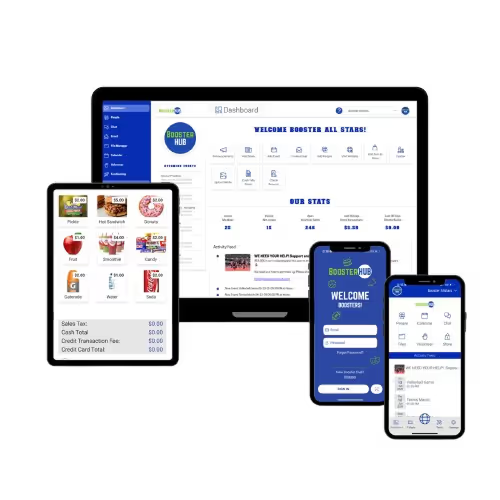
Understanding Band Fees: Fair Share and Why Individual Fundraising Accounts Aren't an Option
As a band parent or booster club member, you may have questions about how fees work and why certain fundraising practices are either encouraged or prohibited. In this blog post, we'll dive into the concept of "fair share" fees and explain why booster clubs cannot offer individual fundraising accounts while maintaining their tax-exempt status.
What Are Fair Share Fees?
Fair share fees represent the actual per-student cost of operating a band program not covered by school funding. Many school districts provide only basic funding for music programs, leaving booster clubs to raise money for essentials like:
- Instrument repairs and maintenance
- Music and licensing fees
- Transportation to competitions
- Uniform cleaning and replacement
- Specialized instruction from guest clinicians
- Competition entry fees
- Equipment purchases
When all these costs are added up and divided by the number of students in the program, you get what's called the "fair share" amount - the actual cost per student to run the program at the desired level.
How Fair Share Donations Work
It's important to understand that while many bands use the term "fair share fees," legally speaking, these should be structured as voluntary donations rather than mandatory fees if your booster club is a 501(c)(3) organization.
A well-structured fair share donation program works like this:
- The booster club creates a detailed budget showing all costs not covered by school funding
- The total is divided by the number of students to calculate the "fair share" amount
- Families are informed of this amount and asked to contribute their fair share
- It must be clearly communicated that these donations are voluntary and not required for participation
- All funds raised go into a general account that benefits the entire program
Why Individual Fundraising Accounts Violate IRS Rules
Many band programs have tried to implement "individual fundraising accounts" where money raised by specific students is tracked and used only for that student's expenses. While this might seem fair on the surface, it creates significant legal problems for 501(c)(3) booster clubs.
Here's why individual accounts are problematic:
1. Violation of Private Benefit Rules
The IRS grants tax-exempt status only to organizations that support a public purpose rather than private interests. When a booster club maintains individual accounts that benefit specific students, it violates this fundamental requirement.
As Lois Lerner, former Director of Exempt Organizations for the IRS, stated, "any booster club that raises money to benefit an individual rather than the group as a whole is in violation of federal law and stands to lose its tax-exempt status."
2. Risk of Revocation of Tax-Exempt Status
The consequences of maintaining individual fundraising accounts can be severe. The Tax Court has upheld IRS decisions to revoke the tax-exempt status of booster clubs that allowed parents to meet mandatory assessments through individual fundraising. These organizations were found to have "operated in a manner that allowed substantial private inurement and promoted private, non-public interests."
3. Tax Implications for Donors
When contributions to a booster club are earmarked for specific individuals, they are not tax-deductible charitable donations. This means donors cannot claim tax deductions, which can reduce their willingness to contribute.
Better Alternatives to Individual Accounts
Instead of tracking individual fundraising efforts, consider these IRS-compliant approaches:
1. Fair Share Donation Programs
Implement a well-structured fair share donation program that clearly communicates:
- The actual per-student cost of the program
- That donations are voluntary and not required for participation
- No student will be excluded based on financial circumstances
- All funds benefit the entire program
2. Group Fundraising with Shared Benefits
Organize fundraisers where all students participate and all proceeds benefit the entire program. This approach aligns with the public benefit requirement of 501(c)(3) organizations.
3. Financial Assistance Programs
For families facing financial hardship, establish a needs-based financial assistance program with clear guidelines and an application process. This allows the booster club to provide support without creating individual accounts.
4. Use Modern Fundraising Platforms
Consider using fundraising platforms like BoosterHub that make it easy to track overall fundraising goals while maintaining compliance with IRS rules. Modern platforms can significantly reduce the administrative burden while keeping 95% of what you raise.
Addressing the "Freeloader" Concern
One of the most common objections to eliminating individual accounts is the concern about "freeloaders" - those who benefit from fundraising without contributing time or money. While this concern is understandable, it's important to remember that supporting all participants equally is a fundamental requirement for maintaining tax-exempt status.
Instead of focusing on individual accounts, try these approaches:
- Clearly communicate expectations: Make sure all families understand the costs associated with the program and how fundraising supports all students.
- Offer multiple ways to contribute: Not all families can contribute financially, but they may be able to volunteer time or contribute in other ways.
- Celebrate all contributions: Recognize both financial contributions and volunteer efforts to create a culture of appreciation.
- Focus on the mission: Remind everyone that the ultimate goal is to provide the best possible experience for all students.
Conclusion
While it might seem appealing to track individual fundraising efforts, the legal requirements for 501(c)(3) organizations make individual accounts prohibitively risky. By implementing a well-structured fair share donation program and focusing on group fundraising efforts, your band booster club can maintain its tax-exempt status while still providing excellent support for your music program.
Remember, the goal is to create a thriving band program that benefits all students, regardless of their financial circumstances. By working together with a focus on this shared mission, your booster club can make a tremendous difference in the lives of student musicians.
Simplify Communications from App to Website


Take Control of Your Booster Club Spending with Debit Cards



.avif)